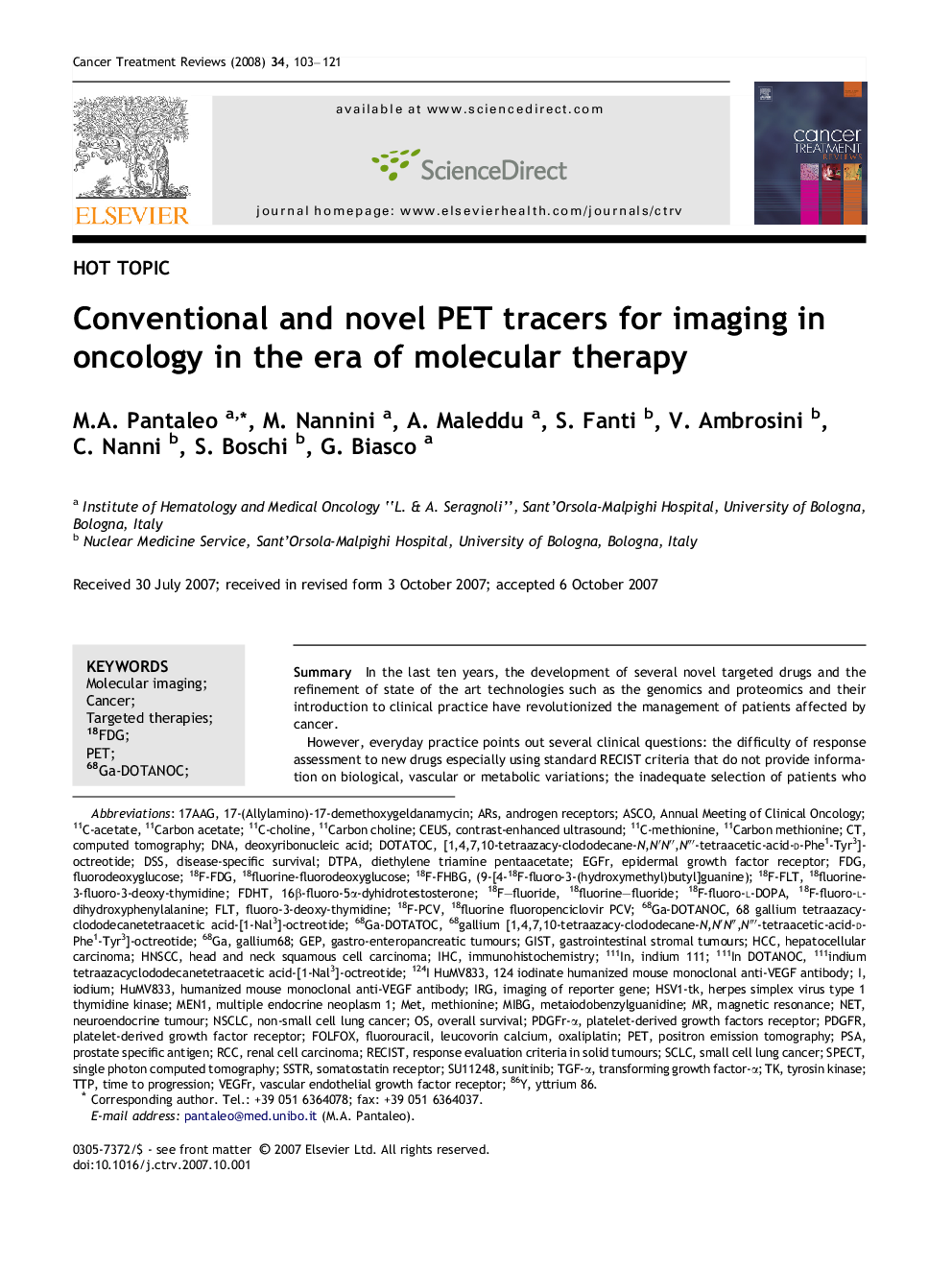| Article ID | Journal | Published Year | Pages | File Type |
|---|---|---|---|---|
| 3980536 | Cancer Treatment Reviews | 2008 | 19 Pages |
SummaryIn the last ten years, the development of several novel targeted drugs and the refinement of state of the art technologies such as the genomics and proteomics and their introduction to clinical practice have revolutionized the management of patients affected by cancer.However, everyday practice points out several clinical questions: the difficulty of response assessment to new drugs especially using standard RECIST criteria that do not provide information on biological, vascular or metabolic variations; the inadequate selection of patients who are likely to benefit from a targeted therapy excluding those with breast cancer and gastrointestinal stromal tumours; the need to know the global biological background of diseases especially in metastatic setting using repeatable non-invasive procedures.Molecular imaging could provide information on in vivo distribution of biological markers in response to targeted therapy and could improve the selection of patients before therapies.The aim of this review is to analyze the current role of conventional and innovative positron emission tomography (PET) radiotracers in clinical practice and to explore the promising perspectives of molecular imaging in cancer research.
